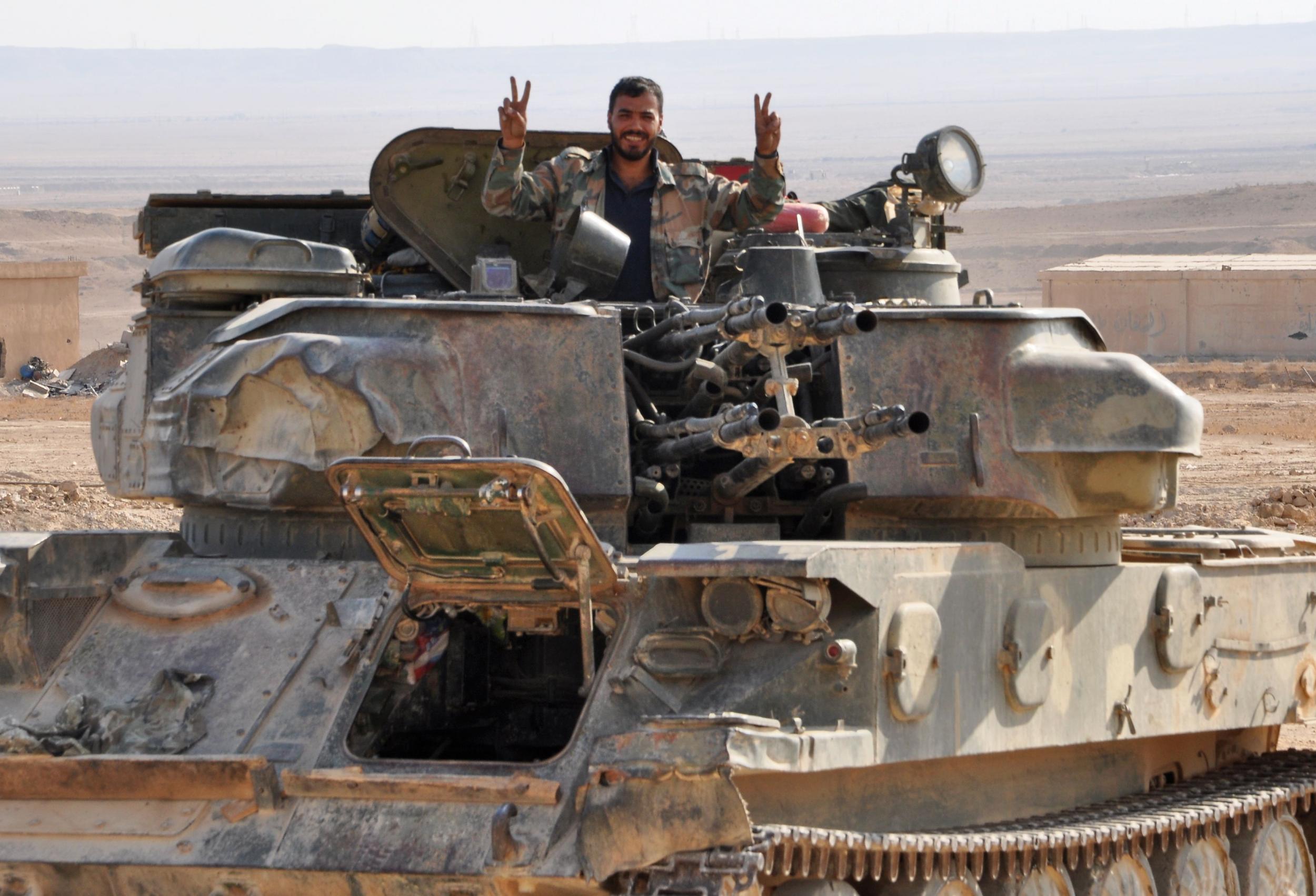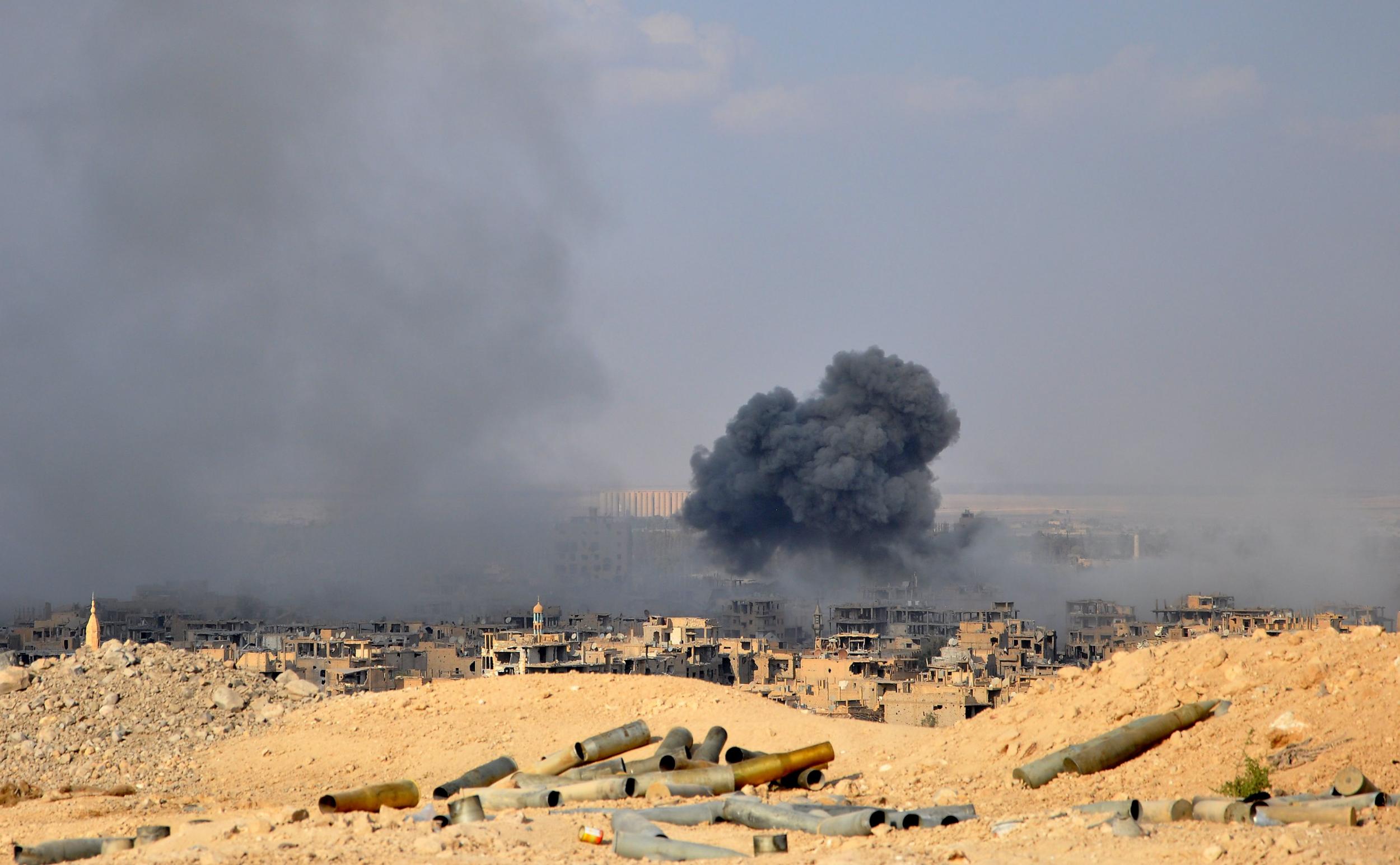Isis terror attacks 'could increase' after group's loss of last major stronghold in Syria
Terrorists intensifying efforts to incite atrocities as fighters disperse throughout region

Your support helps us to tell the story
From reproductive rights to climate change to Big Tech, The Independent is on the ground when the story is developing. Whether it's investigating the financials of Elon Musk's pro-Trump PAC or producing our latest documentary, 'The A Word', which shines a light on the American women fighting for reproductive rights, we know how important it is to parse out the facts from the messaging.
At such a critical moment in US history, we need reporters on the ground. Your donation allows us to keep sending journalists to speak to both sides of the story.
The Independent is trusted by Americans across the entire political spectrum. And unlike many other quality news outlets, we choose not to lock Americans out of our reporting and analysis with paywalls. We believe quality journalism should be available to everyone, paid for by those who can afford it.
Your support makes all the difference.Isis has lost its last major stronghold in Syria after the fall of Deir Ezzor to the Syrian army, but destroying the ideology inspiring terror attacks around the world will be much harder than crushing the physical “caliphate”.
Analysts told The Independent the rate of atrocities carried out in the West could continue to increase as the group struggles to remain relevant to jihadis.
Bashar al-Assad’s forces have re-taken Deir Ezzor with support from the Russian military, pushing Isis militants into the surrounding desert.
The Syrian army’s general command hailed the restoration of “security and stability” to the city, which has been partly controlled by Isis since 2014.
State media hailed the strategic importance of the victory in a region connecting eastern, northern and central Syria to the Iraqi border, which is the centre of national oil production and contains lucrative agriculture and gas reserves.
The army general command described the recapture of Deir Ezzor as “the final stage in the complete elimination of Isis”, claiming it has “completely lost the ability to lead terrorist operations of groups that have become isolated and encircled in the eastern countryside of the city”.

Militants had besieged districts held by the Syrian Army for more than three years, with the end of brutal fighting seeing frontlines pushed back and forth in once-populated streets until battles finally ended on Friday.
The long-running offensive also inflamed tensions between Russia, which is backing the Syrian regime, and the US-led coalition against Isis that opposes Assad, but de-confliction channels and peace talks have since calmed relations.
Meanwhile across the Iraqi border, the Prime Minister Haidar al-Abadi announced that government forces had captured al-Qaim, the border town where the Euphrates spills from Syria into Iraq.
Jean-Marc Rickli, head of global risk at the Geneva Centre for Security Policy and visiting fellow at King’s College London, said the loss of Deir Ezzor presented both a financial and territorial blow to Isis.
“Together with the loss of Mosul and Raqqa it represents the end of the physical caliphate of Daesh [Isis],” he told The Independent.
“It has now become impossible for Isis to sell the image of the caliphate that attracted so many jihadis back in 2014.
“Isis has lost this lever of propaganda and hence in order to remain relevant the organisation has to diversify by staging attacks elsewhere, notably in Europe, Asia, the Middle East and North Africa.”
Dr Rickli expects that only a “minority” of foreign fighters will return to their home countries – a prospect that has caused British and European security services to increase surveillance and controls for months.
“It is more probable that the bulk of fighters will stay in the region for some time by joining new groups in Syria or Iraq or find new sanctuaries such as in Yemen, Afghanistan or Libya,” he added.
“Although Isis’s physical caliphate is dead, its ideology remains and destroying it will be much more difficult and take longer than what has be done with its territorial control in Syria and Iraq.”
American commanders have said Isis has just a few thousand fighters left in border regions, where Isis leader Abu Bakr al-Baghdadi is believed to be hiding in the desert.
“We do expect them now to try to flee, but we are cognisant of that and will do all we can to annihilate Isis leaders,” Colonel Ryan Dillon said.
“As Isis continues to be hunted into these smallest areas ... we see them fleeing into the desert and hiding there in an attempt to devolve back into an insurgent terrorist group.”
Analysts have forecast a new and violent phase for Isis, which continues to hold territory in Iraq and Syria, as well as in countries including Afghanistan, Libya, Somalia, Egypt and the Philippines.
While losing territory, the group has intensified calls for global terror attacks and issued waves of detailed guidance used in attacks, including the atrocity that killed eight people in New York.
Dr Rickli said Isis was trying to maintain its “cyber caliphate”, disseminating propaganda and support among sympathisers, which has declined in recent months.
Haid Haid, a consulting research fellow at Chatham House, said huge territorial losses have forced Isis to change its recruiting policy.
He told The Independent: “Isis is asking its supporters in the West to carry out attacks in their countries.
“Doing so will allow the group to stay relevant to the jihadi scene. As a result, there might be an increase in the terror attacks abroad, especially the attacks that use cars or knives, which are more difficult to prevent.”
Mr Haid said local sources reported that most Isis fighters have withdrawn to the border town of Abu Kamal but some are likely to be moving either to other areas inside Syria or neighbouring countries.
Abu Kamal itself is surrounded from all directions pending another advance by the Syrian military, which does not expect fierce resistance amid reports of collapsing Isis morale and dried-up supply lines.
“The current proclaimed caliphate is most likely finished but the group is not defeated,” Mr Haid warned. “Other other types of future caliphate might re-emerge if the situation allows.”
Join our commenting forum
Join thought-provoking conversations, follow other Independent readers and see their replies
1Comments